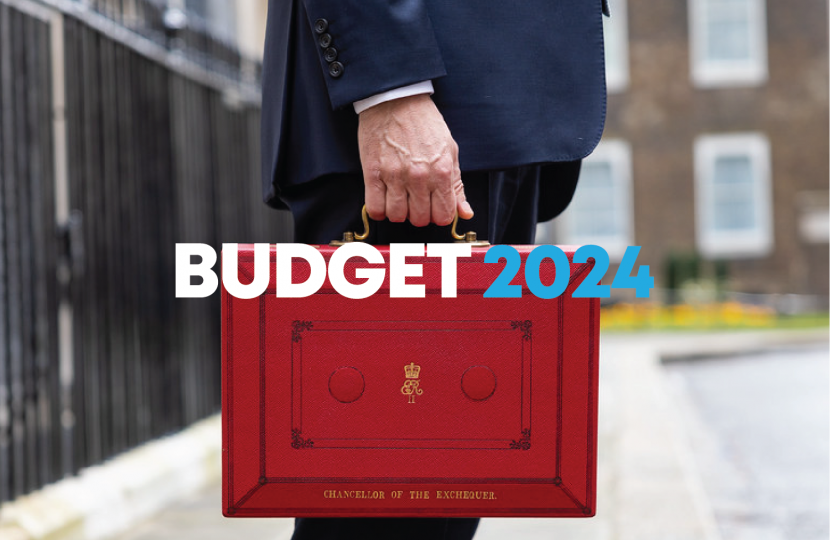
The backdrop to this week’s Budget was not an easy one. In just four years our country has experienced a global pandemic, war breaking out in Europe, and high interest rates across the world. These crises required spending on an unprecedented level. Covid alone cost the country more than £350 billion, for schemes like furlough and business support to protect our highstreets; and shielding residents and businesses from the worst effects of energy price rises cost more than £100 billion. Whilst this meant difficult decisions had to be taken in the Budgets of previous years, including on taxes which had to go up, we have now turned a corner and the economy is recovering.
The latest inflation data shows this hasn’t just fallen from 11% to 4%, but is now on track to be below the 2% target within just a few months. Wages are growing faster than prices, pensions are being increased by more than earnings, and our economy is outstripping our European neighbours in growth.
As a result, it’s right we look at how we can ease the tax burden to ensure hard work is rewarded, and everyone keeps more of what they earn.
The biggest change, affecting tens of thousands across Burnley and Padiham, is the cut to National Insurance for those in work from 10% to 8% – whether employed or self-employed. This doubles the cut which took effect in January of this year, which cut NI from 12% to 10%, and it means hundreds of pounds extra in take-home pay every year. But the benefit is greater than that, with the Office for Budget Responsibility forecasting that this tax cut will help more than 200,000 more people into work – because work really does pay.
Other changes include reform to child benefit so more families can receive this, continuing the 5p cut in Fuel Duty so we don’t see fuel prices jump, and ensuring everyone pays their fair share of tax – including so called ‘non-doms’.
Importantly, the Chancellor has done this whilst protecting investment and spending on public services. As just one example, the NHS will receive further investment in productivity, as well as general spending, to support its work in dealing with increased demand and the backlogs from Covid.
The Budget is just one part of the overall long-term plan that is now bearing fruit. It sits alongside our pledge to maintain the Triple Lock on pensions, our reform and expansion of free childcare, and support to get those out of work back into employment.

